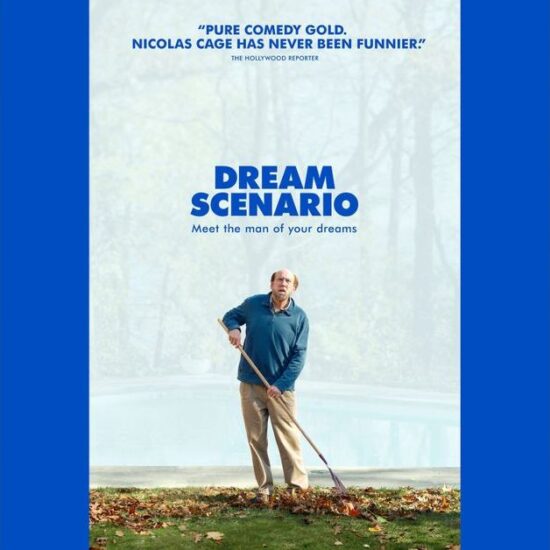
A miner in Germany’s last coal mine undergoing a gender change, a prima ballerina fighting to keep her status after becoming a mother, a repentant hooligan turned kickboxing champion, a father who fled the former Uruguayan dictatorship, rejected refugees awaiting deportation, and stuntwomen taking hit after hit for the film industry: to say that the 5th Swiss Films Previews at doc film fest Visions du Réel introduced us to strong characters is an understatement.
Six promising films soon to be launched on the festival circuit and the international market were selected for the event and pitched at VdR-Industry. Five of them were directed (co-directed for “Red”) by women. Four of them are first features. By the quality of the excerpts and the originality of the themes that fit the times, all of them demand to be seen as finished film.
Here’s an overview of what’s coming up in the Swiss high-end documentary market.
“Stuntwomen” (“Cascadeuses”)
“Today, I got shot,” Petra sums up when her mother asks her about her day at work: an everyday occurrence for the Swiss stuntwoman, who has been working in Los Angeles with the world’s biggest stars for over 20 years. She is one of the three characters of “Stuntwomen,” the first feature by director Elena Avdija.
Tired of getting hurt at work and of living in the shadows, Petra is now trying to become an actress in Hollywood. In the meantime, in France, Virginie, is also transitioning: after two decades of dying on screen, she aims to become the first female stunt coordinator in Europe. In one of the excerpts presented in Nyon, we see her being thrown out of a moving carriage and getting up impressively as if nothing happened, ready to repeat the scene.
How much pain can a body endure? The young Estelle, training to become a stuntwoman, still doesn’t have the answer and dreams of powerful women’s roles. But she’ll soon discover that reality might be quite different. “As an audience, we are from a very young age used to see women in cinema getting kidnapped, raped, murdered, beaten up. It’s at the heart of our industry,” Elena Avdija pitches. “My documentary questions the uneasiness of this issue.”
Produced by Bande à Part Films and Alter Ego Production and expected this coming fall, “Stuntwomen” puts these women in the spotlight for once and looks like a future standout.

“Based on a True Story”
Courtesy of Visions du Reel
“Based on a True Story”
As a member of a solidarity group visiting refugees awaiting deportation at Zurich airport, director Lisa Gerig was able to gather years of information for her first feature film. She chose to tell the story too long untold: what are the criteria, not only in Switzerland, but throughout Europe, to be granted asylum? “Every refugee has to tell his life story in front of the authorities. With my film, I want to shed a light on this procedure based on storytelling,” she said in her pitch.
To stand a higher chance, candidates must be good at speaking in the most convincing way possible, as emotionally as possible, and without ever contradicting themselves.
Lisa Gerig’s film portrays three rejected asylum seekers reenacting their asylum hearing and talking about their traumas again. The interviews are replayed under the exact conditions that those at the Swiss State Secretariat for Migration, with three real interviewers conducting the hearings according to the official rules. It gives the spectator an inside look at what was a complete black box until now.
Producer Eva Vitija (Ensemble Film) and Lisa Gerig are hoping to make a real impact with the film and create dialogues about the subject. It bodes well for the future: groups of lawyers and migrant organizations have already expressed their strong interest in the movie, expected to premiere at the beginning of 2023.

“Becoming Giulia”
Courtesy of Visions du Reel
“Becoming Giulia”
A former dancer at the Zurich Opera, director Laura Kaehr makes no secret of having suffered in the ultra-competitive and ruled by men world of high-level dance where, in her own words “at 25, you are done.” Yet she did not hesitate to go back there, for three years of filming, for her first feature “Becoming Giulia,” a subtle critique of the inequality suffered by women in the ballet world.
“When Giulia Tonelli, prima ballerina, confided in me that she was pregnant and afraid, I immediately knew I had to tell her story,” Kaehr recalled at the previews.
Filmed in a very cinematographic way, without any interviews, her film offers an unprecedented immersion in the backstage of a great opera house, following the protagonist as she faces her biggest challenge: not letting herself be pushed aside on return from maternity leave.
“Every day is intense for dancers at this level and so it was for me,” Kaehr tells Variety. “Every day, I had to find the courage to go back to this place where I had lived a number of not so nice experiences, when it could have been so beautiful if women were treated differently. Perhaps the hardest thing for a documentarist who comes from the same background as the protagonist, is to never intervene and let reality unfold. Sometimes I filmed while crying.”
The film, produced by Point Prod, is expected to be completed this summer. It seems headed to a strong international interest due to the fame of its protagonists, the strong themes it deals with, the beauty of its settings, dance scenes and the mastery of the subject by the director. “I want to find a distributor who loves the film as much as we do and understands this way of making films that doesn’t start from something intellectual, but rather from a visceral need to tell a story with tremendous passion,” Kaehr tells Variety.

“I Might Remember”
Courtesy of Visions du Reel
“I Might Remember” (“Para no olvidar”)
When director Laura Gabay’s father passed away three years ago, she found dozens of reels of Super 8 and audio recordings he had exchanged with his sister who lived in Brazil. Recordings showing and telling the story of her dad and aunt after they fled Uruguay, following the military coup of 1973. Missing pieces of her family history that Geneva-born Gabay never discussed with her father. “Finding those recordings was the starting point of my film,” she explained at Visions du Réel.
“While looking at them, many memories came back and so many questions that will remain unanswered. Through this work, I wanted to rebuild my family’s history and question the silence caused by exile. That silence can take hold of entire families and be passed from one generation to the next.”
Very touching excerpts revealed the extensive work of writing and editing Gabay went through to give her father his voice back, combining his silent images with his unrelated audio recordings and her voiceover in Spanish.
This first feature also goes to show how political issues impact families, their identities, and their legacy.
Produced by Ecran Mobile and Les Sœurs Jaouen, it is expected in spring 2023.

“Red”
Courtesy of Visions du Reel
“Red”
Sport saved his life, says former European kick-boxing champion, Francesco Laquale. Somehow, training allowed him to control his violent inner being. But his past as a hooligan still haunts him and is reflected in everything he does.
London-based director Mara Manzolini came up with the idea of a documentary centered on him: “I knew Francesco from Lugano where we grew up,” she told the audience. “I hadn’t seen him for years. When I learnt about his past, I was shocked. How could our lives become so different?”
In permanent search for self-control, with the constant support of his girlfriend, Francesco’s story is one of redemption. We see him growing through the film, becoming a trainer, an inspiration for a group of young people and for a little girl, who dreamed of kickboxing herself.
To talk about his past, which Laquale still has difficulty putting into words, Manzolini and codirectors Andrea Pellerani and Elodie Dermange opted to include three animated parts, in black, white and blood red. “Animation also allows us to push the limits of reality, to go inside his head and confront him with his fears in a fictional way,” they explain.
The ani-doc produced by Amka Films Productions and Nadasdy Film is expected in fall 2022.

“Once We Were Pitmen”
Courtesy of Visions du Reel
“Once We Were Pitmen” (“Wir waren Kumpel”)
A man’s world in the Ruhr, Germany, made of dust, hard physical work and deep-shaft mining. A world that doesn’t exist anymore: the country’s last underground coal mine closed its doors in December 2018. Before that happened, Swiss director Christian Johannes Koch and German director Jonas Matauschek spent two years researching and filming the daily life of the pitmen.
“Six years ago, I read an article about this mine closing, and I wanted to see it for myself. It felt like being in a museum of industrialization, time seemed to stand still and I found it odd to see a professional environment that was still exclusively male, Koch tells Variety. “As the closure was approaching, we started shooting before we had finished the research.”
As a result, the script evolved during the months of immersion and as they discovered the personal stories of the five main protagonists. The directors followed them until late 2021, while they were trying to reinvent themselves after their profession simply disappeared.
Built on different timelines, the film addresses change at several levels: ecological transition, loss of identity when one’s professional environment collapses, but also gender change, through the protagonist Martina.
“She was very interesting to follow because she fought for 40 years, completely alone, to be the person she really was and eventually transitioned while working in this coal mine. Today, among the protagonists, she is the only one still working in a mine, but a salt mine this time.”
Presented at the 2020 Venice Gap-Financing Market and winner of the Kompagnon Fellowship of Berlinale Talents in 2021, “Once We Were Pitmen” has already gathered strong international interest. Produced by Catpics and elemag pictures, it will be ready to premiere end 2022-early 2023.














